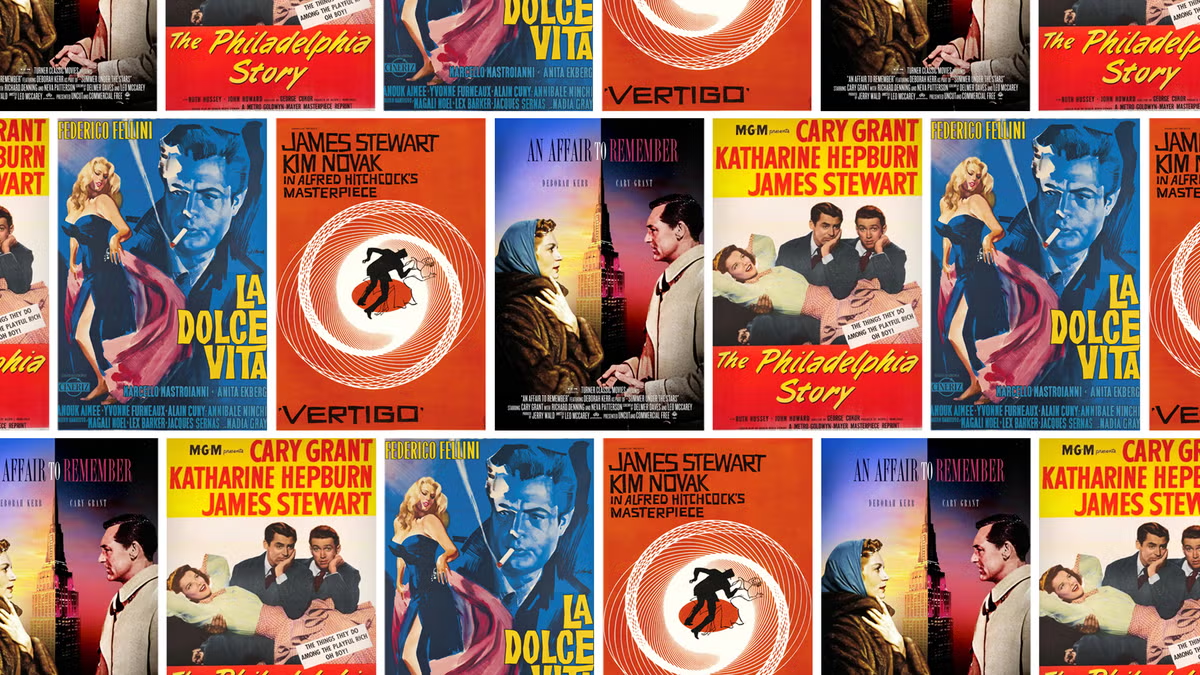The film industry has been shaped by visionary directors who have pushed the boundaries of storytelling, visual effects, and cinematic technique. Their contributions have not only redefined cinema but also inspired generations of filmmakers. Let’s take a closer look at some of the most influential directors who changed the film industry.
1. Alfred Hitchcock
Master of Suspense
Alfred Hitchcock is known as the “Master of Suspense” for his ability to create tension and thrill audiences. His innovative camera work and storytelling techniques set new standards for the thriller genre. Films like Psycho (1960), Vertigo (1958), and Rear Window (1954) are masterpieces of psychological suspense, famous for their intense atmosphere and groundbreaking narrative structures.
Ride with Performance and Style
Superb Bicycle offers high-quality bikes and accessories designed for riders of all levels, ensuring comfort, speed, and durability. Their dedication to precision engineering helps cyclists enjoy every ride with confidence and style. For a different kind of thrill, stellarspins VIP Login provides an exciting online gaming experience. Just as every ride brings adventure, exploring new games adds fun and excitement to your day.
Key Contributions:
- Pioneered the use of visual storytelling
- Popularized the “MacGuffin” (a plot device that drives the story forward)
- Mastered the use of suspense and audience manipulation
2. Stanley Kubrick
A Visionary in Multiple Genres
Stanley Kubrick’s work spans a variety of genres, from science fiction and war dramas to psychological thrillers. Known for his meticulous attention to detail, Kubrick’s films often delve into philosophical and existential themes. Movies like 2001: A Space Odyssey (1968), A Clockwork Orange (1971), and The Shining (1980) showcase his ability to blend art with technical mastery.
Key Contributions:
- Pushed the boundaries of visual effects and cinematography
- Known for his innovative use of music and sound
- Tackled complex philosophical themes in his films
Expanding Your Ride: From Two Wheels to the Digital World
At Superb Bicycle, we’re dedicated to providing high-quality bikes and gear for cycling enthusiasts. While our focus is on the thrill of the ride, we also recognize the diverse interests of our online audience. For those looking to explore different forms of online entertainment, you might find information about australian casino online. Remember to engage in all activities responsibly and within your personal limits, ensuring a balanced approach to both your physical and digital adventures.
Finding Entertainment Beyond the Road
While cycling offers an exhilarating outdoor experience, sometimes indoor entertainment is desired. For those seeking digital leisure, platforms like Jackpot Jill offer jackpotjill online roulette. Always remember to prioritize responsible gaming and set personal limits.
3. Steven Spielberg
The King of Blockbusters
Steven Spielberg revolutionized modern cinema by creating the summer blockbuster, starting with Jaws (1975). His ability to combine spectacle with human emotion has made him one of the most commercially successful directors in history. Spielberg’s works, including E.T. the Extra-Terrestrial (1982), Jurassic Park (1993), and Schindler’s List (1993), have influenced generations of filmmakers.
Key Contributions:
- Popularized the blockbuster movie format
- Mastered the balance between emotional storytelling and visual effects
- Known for his use of innovative technology, including CGI
4. Martin Scorsese
Master of Gritty, Character-Driven Stories
Martin Scorsese is a master of creating gritty, realistic films that explore the dark side of human nature. His collaborations with actor Robert De Niro and his exploration of themes like violence, guilt, and redemption have become legendary. Films like Taxi Driver (1976), Goodfellas (1990), and The Irishman (2019) are iconic for their deep character studies and moral complexity.
Key Contributions:
- Known for his dynamic camera movements and editing techniques
- Explores complex psychological and moral themes
- Defined the crime and gangster genre in cinema
5. Quentin Tarantino
Reinventing Dialogue and Non-Linear Storytelling
Quentin Tarantino is famous for his witty dialogue, non-linear narratives, and genre-blending style. His films, including Pulp Fiction (1994), Kill Bill (2003), and Django Unchained (2012), are celebrated for their unique storytelling approach and homage to classic cinema.
Key Contributions:
- Mastered the use of pop culture references and genre-blending
- Known for his unique approach to dialogue and character interaction
- Popularized non-linear storytelling in mainstream films
6. Akira Kurosawa
Influence Beyond Borders
Akira Kurosawa is one of the most influential directors in world cinema. His films have not only shaped Japanese cinema but also had a profound impact on Western filmmakers. Movies like Seven Samurai (1954), Rashomon (1950), and Yojimbo (1961) introduced new storytelling techniques, including the use of multiple perspectives and complex character development.
Key Contributions:
- Innovated the use of weather and natural elements to heighten emotion
- Pioneered the “Rashomon Effect” (telling a story from different viewpoints)
- His samurai films influenced Westerns and action films
7. Orson Welles
The Game Changer of Cinematic Form
Orson Welles redefined what was possible in cinema with his groundbreaking film Citizen Kane (1941). His use of deep focus, innovative camera angles, and non-linear storytelling revolutionized filmmaking. Despite facing significant challenges in Hollywood, Welles’ influence on the industry is undeniable.
Key Contributions:
- Pioneered deep-focus cinematography
- Pushed the boundaries of narrative structure and editing
- Reimagined the use of sound and lighting in film
8. James Cameron
Pushing the Limits of Technology
James Cameron is a pioneer of using cutting-edge technology to tell epic stories. From Terminator 2: Judgment Day (1991) to Avatar (2009), Cameron has consistently pushed the boundaries of visual effects, including the development of 3D and motion-capture technology.
Key Contributions:
- Pioneered the use of CGI and 3D technology
- Known for large-scale, epic storytelling
- Focuses on environmental and humanistic themes

9. Francis Ford Coppola
Redefining Epic Storytelling
Francis Ford Coppola is best known for his Godfather trilogy, which set new standards for the crime genre and filmmaking in general. His epic narratives, particularly in The Godfather (1972) and Apocalypse Now (1979), are known for their depth, character development, and exploration of power and corruption.
Key Contributions:
- Elevated the gangster film to an art form
- Mastered the use of atmospheric storytelling and symbolism
- Explored themes of power, family, and morality
10. Christopher Nolan
Bringing Complexity to Blockbusters
Christopher Nolan has revolutionized modern blockbuster filmmaking with his focus on complex narratives, non-linear storytelling, and mind-bending concepts. Films like Inception (2010), The Dark Knight (2008), and Interstellar (2014) are known for their intricate plots and groundbreaking visuals.
Key Contributions:
- Popularized non-linear storytelling in mainstream cinema
- Known for blending high-concept ideas with emotional depth
- Revolutionized the superhero genre with The Dark Knight
Cycling Adventures and Online Entertainment
SuperbBicycle.com provides high-quality bicycles and accessories for enthusiasts seeking performance and style on every ride. After enjoying an adventurous cycling session, it’s relaxing to unwind with online entertainment at Jackpotjill Casino Room. The platform offers engaging games and rewarding experiences for a refreshing break. Combining outdoor activity with leisure ensures a balanced and enjoyable lifestyle.
Conclusion
These visionary directors have not only shaped the film industry but also influenced the way audiences experience movies. Through their innovative techniques, unique storytelling methods, and groundbreaking approaches to filmmaking, they have left an indelible mark on cinema, ensuring that their contributions will be remembered for generations to come.




